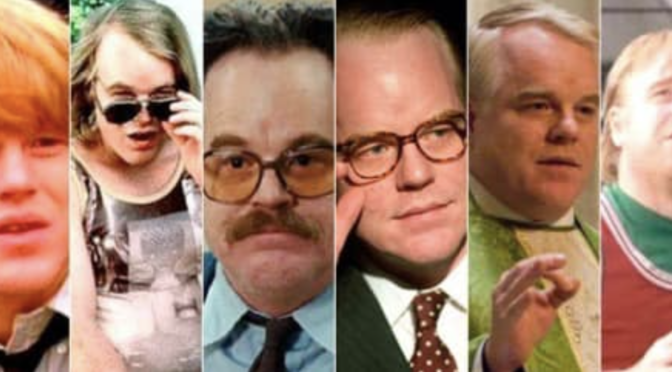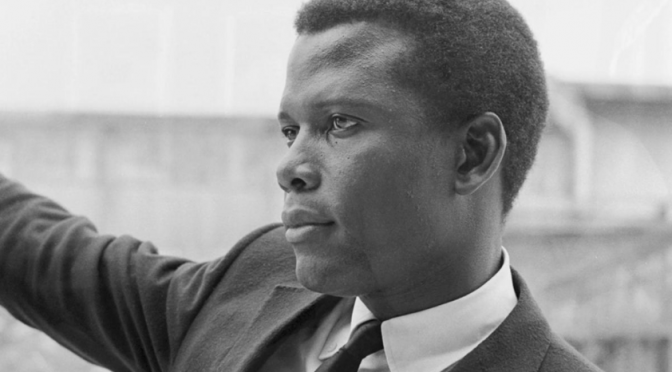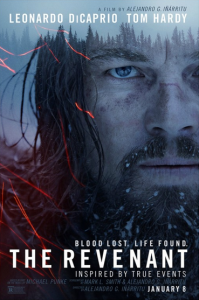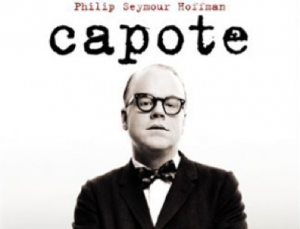
[Originally published as “Phoenix Rising” on Laura Grey’s Little Hopping Bird blog.]
Some actors have a gift for making audiences uncomfortable. They know when to hold a gaze too long or whether to avoid eye contact altogether; how to let panic, malice or discovery flit across their faces almost imperceptibly; how to touch their faces absentmindedly, betraying their anxiety or concern. We who watch them thrill to the feeling that we alone have discovered their secrets or noticed the tell-tale change in their mood that everyone else has missed. But sometimes the naturalism of their discomposure makes us worry that they are not really actors at all, but rather embodiments of the troubled characters whose lives they inhabit for our entertainment. James Gandolfini‘s Tony Soprano was so commanding and charismatic that the world believed the actor and the character must be two sides of the same being. Seeing him interviewed and hearing his intelligent, slightly shy delivery expressing insights with quiet, wry humor was disorienting. When speaking in his own voice, Gandolfini betrayed a tenderness and self-deprecation we would never have expected based on the behavior and body language of his most famous creation. When Bradley Cooper is asked about his mentor and co-star Robert De Niro, he describes a thoughtful, articulate and generous man who is nothing like the belligerent and threatening characters he is best known for playing in the movies.
Joaquin Phoenix is such a modern master of discomfort. As a child actor then known as Leaf Phoenix, he had steady television work and was in occasional movies, like “Parenthood,” but he grew up in the shadow of his talented older brother, River. The two were together when River died of a drug overdose in 1993; a 911 emergency audiotape featuring Joaquin’s anguished voice asking for help for his brother was played incessantly on television and radio for weeks after River’s death, and the trauma and the constant media hounding so devastated Joaquin that he retreated from acting for a year. In 1995, however, he got a big break playing an important supporting role in the Gus Van Sant film “To Die For.” Phoenix played Jimmy, a lonely, slow-witted, desperate boy who becomes obsessed by a perky local news television personality played with sociopathic relish by Nicole Kidman. Kidman’s manipulative character strings the Phoenix character along and wraps him dangerously around her finger. Kidman plays her part with an earnest yet sprightly quality that’s meant to be outsized, colorful, almost cartoonish, along the lines of the characters in “Edward Scissorhands.” By contrast, Phoenix plays his role as Kidman’s pawn with great vulnerability and realism. His confusion feels painfully real as he slowly tries to make sense of the situation he’s been drawn into. A lesser actor could have played Jimmy as a sap or stooge not worth worrying about, but Phoenix gives him a shape and a heart; his character is the one touches us the most and makes Kidman’s transgressions feel especially chilling.
It was his performance as Commodus, the twisted, desperate young emperor who ruins the life of Russell Crowe’s Maximus in “Gladiator,” that drew the world’s attention and earned him his first Oscar nomination. The performance holds up powerfully all these years later, despite his on-again, off-again attempts at a British accent. His character is by turns vulnerable and tyrannical, and like a Shakespearean villain, his evil deeds are offset by scenes in which we see him squirm painfully as his father, Emperor Marcus Aurelius (played with appropriate disdain by Richard Harris), and the gladiator Maximus humiliate him emotionally and physically. We can’t help but feel a measure of pity for him as we see the contempt heaped upon him by his father; evil-doers are always so much more fun to watch when we get a glimpse at what twisted their souls in the first place. Phoenix alternates a pouty, whiny narcissism with dangerous hubris in what is, to my mind, the most compelling performance in the film.
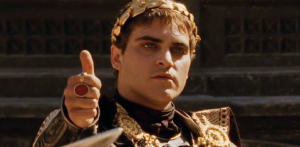
Phoenix as Emperor Commodus in “Gladiator”
His second Academy Award nomination for Best Actor came five years later in 2005 when he starred in the Johnny Cash biopic “Walk the Line.” Though he didn’t win the Oscar that year, it was his strong performance that allowed Reese Witherspoon to play off him so effectively that she won her own Best Actress award. Johnny Cash had a jangling agitation in the way he sang and in the way he held himself, and Phoenix tapped into that perfectly. There’s a low hum of anxiety and suppressed energy in Johnny’s seemingly straightforward songs, and while Phoenix doesn’t look particularly like Johnny, nor is his singing a spot-on impersonation of Cash as Jamie Foxx’s impersonation of Ray Charles was in the film “Ray,” Phoenix nonetheless gets the feeling right, captures Cash’s charisma and energy and makes the story flow along a satisfying and seemingly inevitable path.
In 2010 Phoenix played a bizarre fictionalized version of himself in Casey Affleck’s mockumentary “I’m Still Here.” Where his odd, seemingly addled character ended and Phoenix himself began wasn’t clear as he appeared barely coherent and gave conflicting stories about himself in talk show appearances and in written interviews while the film was being made. Like comedian and performance artist Andy Kaufman in the 1980s, he challenged people to recognize that he was playing tricks on them. Happily, his statements that he was quitting acting to become a rapper were false, and he was back costarring with Philip Seymour Hoffman in Paul Thomas Anderson’s film “The Master” in 2012.
Phoenix played Freddy, an amoral, emotionally stunted deviant who regularly swilled cocktails concocted from shots of fuel and paint thinners. The character was so disturbed and outrageous that the rumors of Phoenix’s own emotional instability spread. His portrayal of Freddy was simultaneously over-the-top odd and yet believable. To inhabit this broken and frightening man’s persona, Phoenix turned memories of his own physical injuries into tics, and he slurred and mumbled his way through lines in a parody of his own shambling speaking style. (For a fascinating description of how he created his character, listen to his highly entertaining interview with Terry Gross, host of National Public Radio’s “Fresh Air.”) His intensity and rawness make the character of Freddy hard for the audience to spend time with; he has no boundaries and no filter, and his recklessness makes him appear capable of anything at all. When Phoenix plays off the hale and hearty, but no less frightening, charisma of Philip Seymour Hoffman‘s character, who is based on Scientology founder L. Ron Hubbard, there are almost literal sparks on the screen, so exciting is the contrast between their styles. These two actors were so fiercely focused and totally in the moment with each other that you believe everything they say occurred to them for the very first time as the cameras roll. Despite the loathsomeness of their personalities, they are so compelling and their performances bounce off each other so thrillingly that the resulting film is worth the discomfort of spending over two hours watching them behave atrociously.
Considering Joaquin Phoenix’s history of playing one disturbed, fragile, inappropriate man after another, I feared that his character in the Spike Jonze film “Her” might be more than a little creepy. He is, after all, a man who feels such awkwardness among real human beings that he spends his days pretending to be other people and writing their most personal letters for them as a ghost writer. He then forms his most intimate attachment to a simulated woman, a disembodied, computerized voice, because he can’t make a go of actual human relationships. Yet, despite the extreme oddness found in the careers of both Phoenix and writer-director Jonze, there is a beautiful, gentle quality to Theodore that drew me in and made me care for and want to protect him. Phoenix portrays Theodore with an immense vulnerability that builds up through small gestures: the way he presses his glasses back up his nose; the joyful, relieved smile that spreads across his face when he converses freely and delightedly with his computerized companion; the way his body seems to crumple inward when he has to interact with actual three-dimensional people. Theodore is fragile and scarred by life experience, and he is awkward and confused about how best to handle other people one-on-one, but he doesn’t lose his basic decency even when others take him for granted or unleash their own rage or fear on him. He may be shy and scared, but he is also brave enough to be vulnerable, to try something altogether new, to pick up the pieces after a heartbreak. There is joy in watching this stunted soul open his heart and set aside his pain, and great sadness at seeing him struggle when adversity strikes. In another actor’s hands, Theodore could have been too dark or too off-putting, or embarrassingly dorky, but Phoenix plays him with a gentle touch and the understanding of one who has himself been misjudged or or written off.
The willingness to lay oneself bare for others to view can be either narcissistic or generous; for many actors, it’s both. Joaquin Phoenix and Spike Jonze seem to have found perfect partners in each other in creating “Her.” While the story is Jonze’s very personal vision, the process of making Phoenix disappear into the part was very much a collaboration. Initially, Jonze hired the talented English actress Samantha Morton to be the voice of Samantha. Morton, herself an indie film favorite who played Agatha, the senior precog in “Minority Report,” is often described as quirky, sat in an uncomfortable little wooden box while on the set, far away from Phoenix, and the two of them communicated only via earpieces, like their characters. They did the entire film that way, and then Jonze realized that, lovely as their performances were, there was something not quite right in the chemistry between the two of them. He is circumspect about explaining what the problem was since he doesn’t want to denigrate anyone’s acting, and he and Phoenix have only praise for Morton’s work on the film, which they say was very helpful in inspiring Phoenix’s performance. The only thing Jonze has implied is that Morton’s voice may have come across as too motherly, and that rather than instilling a belief in the audience that there could be a romantic spark between them, she may have sounded a bit too nurturing instead of sexy in her interactions with Phoenix. As a result, in post-production Jonze recast the computer love interest with Scarlett Johansson. As Spike Jonze put it, “[Joaquin] was speaking to Samantha Morton the entire time—she was in his ear, in another room, and he was in her ear. Samantha is a big part of the movie because she was with us, and gave Joaquin so much and gave the movie so much. And then in [postproduction,] when we decided that what we did wasn’t working, and we ended up recasting with Scarlett [Johansson]. [Joaquin] worked with Scarlett in post—but to help her do her part, so off-camera and off-mic with her.”
Phoenix was generous in coming back onto set to work with Johansson to make sure her performance sounded like a true, emotion-packed conversation; some actors refuse to run scenes with other actors once they’ve shot their own close ups and recorded their own looping (voice dubbing). Less generous actors leave the set after filming their own scenes, expecting crew members to read lines for other actors to react to, which can, unsurprisingly, result in less convincing results. By all accounts, all the actors in “Her,” including Amy Adams, who plays Theodore’s dear friend and confidante with warmth and tenderness, were generous and devoted to making the communication in this film feel genuine and organic. Their work underscores the theme of true connection with another being not depending on looking into his or her eyes.
There is a sadness beneath all four of the feature films Spike Jonze has directed, the threat of a dark underworld that drags all of his characters into melancholy. This Jonzian undertow brings a depth to stories that are often populated with slightly cartoonish, overdrawn characters who are going through midlife crises and react by turning their worlds upside-down. In his first two films, “Being John Malkovich” and “Adaptation,” this depressive quality played off a sometimes manic, off-kilter humor. There was an occasional meanspiritedness to the characters that left me feeling admiration for the skill involved in the films’ creation, but distaste for most of the people portrayed. “Where the Wild Things Are,” though based on the classic children’s book by Maurice Sendak, is more wryly bleak and dark than many filmgoers seemed prepared for. Max, the boy in his wolf suit who tames the the wild things and becomes their king, befriends Carroll, a depressed wild thing voiced touchingly by the late James Gandolfini. Although “Wild Things” is more moody and adult than audiences expected, it is a worthy effort with some moving performances.

Director Spike Jonze (right) in a rare onscreen role as Conrad in David O. Russell’s 1999 film “Three Kings” alongside Ice Cube (left) and Mark Wahlberg
This tender quality continues in “Her,” and the film feels very personal to Jonze, who is an amiable and charming man, but who says that he spends vast amounts of time alone as he gets into the heads of his characters and creates his stories. He is a ruminator and a dreamer, which is surprising for a man who made a name for himself by directing kinetic, quirky music videos for groups like Weezer (and a brilliant one featuring a dancing Christopher Walken for Fatboy Slim), creating clever advertisements for Ikea, Adidas and The Gap and establishing youth culture magazines Homeboy and Dirt (the latter of which was once described as “Sassy Magazine for boys”). He was producer and co-creator of the MTV TV series “Jackass” and he produced “Jackass: The Movie.” He’s an occasional (and talented) actor as well. He makes a cameo appearance in “The Wolf of Wall Street,” but his finest role was as Conrad, the dim but loyal redneck soldier in the excellent David O. Russell film “Three Kings,” which also starred George Clooney, Mark Wahlberg and rapper Ice Cube. The film is by turns seriously dark and outrageously fun, and it is the initial jovial oddness of the characters, especially Spike Jonze’s Conrad, that makes the later, rougher scenes even more poignant.
Jonze himself is ever affable, open and approachable in his interviews, and is known to foster a collaborative, creative atmosphere on set with his actors. He is well-liked by the film community, but his work points to a darker, sadder person within who enriches his films by incorporating his awareness of the melancholic side of the human condition into works designed to entertain and encourage connection, no matter how odd and unorthodox, between lonely creatures who hope to find homes in the hearts of others. Jonze was fortunate to find a partner in Joaquin Phoenix, whose performance in “Her” should have easily qualified him for a place among the five Oscar nominations for Best Actor in a Leading Role this year. His is a stunning and unusual performance in one of the more thoughtful films of 2013.

